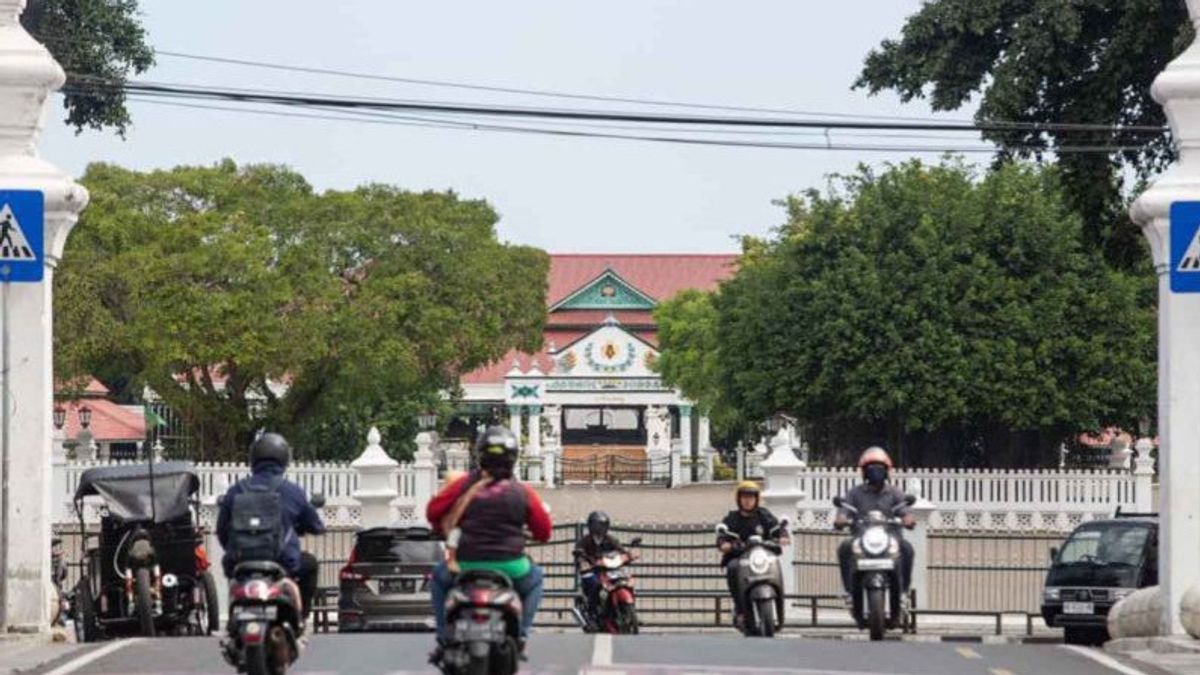YOGYAKARTA - The Yogyakarta Special Region Government asked the public not to heed UNESCO's recommendations regarding the relocation of informal settlements within the Philosophy Axis area which has been designated as a world cultural heritage.
Head of the DIY Culture Service, Dian Lakshmi Pratiwi, stated that the relocation would always be preceded by a long study and communication with various parties.
"There's no need to worry that it's all part of communication, it's impossible to go forward (add). Like that, it takes an old study, old communication and we will consider many things," he said as quoted by ANTARA, Monday, October 2.
Recommendation for relocation is stated in the fourth point of the seven UNESCO recommendations which read: Continuing the implementation of the voluntary relocation process of informal settlements within the region by ensuring that people's rights and needs remain protected.
"Actually, it is related to the attributes (Filosophy Flats) which were then damaged, because the building interventions were not actually there," said Dian.
According to him, the provision is basically not stiff or rigid because it is not a recommendation for improvement, but a suggestion to strengthen the DIY Regional Government in managing the Philosophy Axis area.
"That's a suggestion to strengthen. If the improvement is different again, it just so happens that Indonesia is seen by UNESCO as already able to handle it. So, it is strengthening so that we have efforts that then are more in accordance with international standards," he said.
Regarding the relocation in Filosofi Village, said Dian, it is not new at all. Long before the trial for determining the world heritage, the DIY Regional Government had started by relocating street vendors (PKL) in the Malioboro area to Teras Malioboro (TM) 1 and TM 2.
In recent times, there have also been illegal emptying of residential areas that protect or stick to the inside of the Yogyakarta Palace fort wall.
The emptying of informal settlements related to the revitalization of the Palace Fort, said Dian, was accompanied by the fulfillment of people's rights in the form of interest money or prize money to move from the area.
"That, even the study has been since 2015. So, actually why yesterday's determination of World Heritage was smooth, because there was evidence," he said.
Meanwhile, continued Dian, for the revitalization of the Palace Fort on the outside, there has been no further direction regarding the emptying of the building.
Apart from being illegal, settlements that have the potential to be targeted for relocation are those who occupy Sultan Ground (SG) or Tanah Sultanan.
"What is clear is that it is received by Dalem or SG and based on the agreement first, if needed, it is willing to be asked to come back," he said.
VOIR éGALEMENT:
Previously, UNESCO designated the Yogyakarta Philosophy Axis as one of Indonesia's world heritages at the 45th trial of the World Heritage Committee or WHC in Riyadh, Saudi Arabia, Monday (18/9).
The Yogyakarta Philosophy Axis on the UNESCO World Heritage List entitled "The Cosmological Axis of Yogyakarta and It's Historical Landmarks" is recognized as a world heritage, because it is considered to have an important universal meaning.
The concept of spatial planning, known as the Yogyakarta Philosophy Axis, was first initiated by the First King of the Ngayogyakarta Sultanate Hadiningrat in the 18th century.
This spatial layout concept was created based on the Javanese conception and in the form of a straight road structure that stretches between the Krapyak Stage to the south, the Yogyakarta Kraton and the Yogyakarta Tugu to the north.
The English, Chinese, Japanese, Arabic, and French versions are automatically generated by the AI. So there may still be inaccuracies in translating, please always see Indonesian as our main language. (system supported by DigitalSiber.id)












